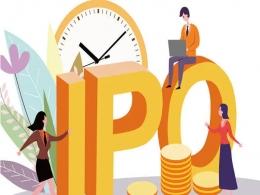Turning over a new year inevitably leads to selections for 'CEO of the Year.' Investor Business Daily selected Larry Page of Google 3 weeks ago and last week, Marketwatch.com selected Jeff Bezos of Amazon. Comparing the two is worthwhile, because there is almost nothing similar about what the two have done and one is almost sure to dramatically outperform the other.
Focusing On The Future
What both share is a willingness to focus their companies on the future. Both have introduced major new products, targeted at developing new markets and entirely new revenue streams for their companies. Both have significantly sacrificed short-term profits, seeking long-term, strategic positioning for sustainable, higher future returns. Both have spent, and continue to spend, vast sums of money in search of competitive advantage for their organisations.
And both have seen their stock value clobbered. In 2011, Amazon rose from $150/share low to almost $250 before collapsing at year's end to about $175 actually lower than how it started the calendar year. Google's stock dropped from $625/share to below $475 before recovering all the way to $670 only to crater all the way to $585 last week. Clearly, the analysts awarding these CEOs were looking way beyond short-term investor returns when making their selections. So it is more important than ever that we understand what both have done, and are planning to do in the future, if we are to support either, or both, as award winners. Or buy their stock.
Google Participates In Great Growth Markets
The good news for Google is its participation in high growth markets. Search ads continue growing, supplying the bulk of revenues and profits for the company. Its Android product gives Google great position in mobile devices and supporting Chrome applications help clients move from traditional architectures and applications to Cloud-based solutions at lower cost and frequently higher user satisfaction. Additionally, Google is growing Internet display ad sales, a fast-growing market, by increasing participation in social networks.
Because Google is in high growth markets, its revenues keep growing healthily. But CEO Page's 'focus' leadership has led to the killing of several products, retrenching from several markets and remarkably huge bets in two markets where Google's revenues and profits lag dramatically mobile devices and search.
Because Android produces no revenue, Google bought near-bankrupt Motorola to enter the hardware and applications business becoming similar to Apple a big bet using some old technology against what is the No. 1 technology company on the planet. Whether this will be a market share winner for Google, and whether it will make or lose money, is far from certain.
Simultaneously, the Google+ launch is an attempt to take on the King Kong of social Facebook which has 800 million users and remarkable success. The Google+ effort has been (and will continue to be) very expensive and far from convincing. Its product efforts have even angered some people as Google tried steering social networkers rather heavy-handedly toward Google products as it did with 'Search plus Your World' recently.
Page has positioned Google as a gladiator in some serious 'battles to the death' that are investment intensive. Google must keep fighting the wounded, hurting and desperate Microsoft in search against Bing+Yahoo. While Google is the clear winner, desperate but well-funded competitors are known to behave suicidally, and Google will find the competition intensive. Meanwhile, its offerings in mobile and social are not unique. Google is going toe-to-toe with Apple and Facebook with products which show no great superiority. And the market leaders are wildly profitable while continuously introducing new innovations. It will be tough fighting in these markets, consuming lots of resources.
Entering three gladiator battles simultaneously is ambitious, to say the least. Whether Google can afford the cost, and can win, is debatable. As a result, it only takes a small miss, comparing actual results to analyst expectations, for investors to run as they did last week.
Amazon Redefines Competition In Its Markets
CEO Bezos' leadership at Amazon is very different. Rather than gladiator wars, Amazon brings out products that are very different and avoids head-to-head competition. Amazon expands new markets by meeting underserved or unserved needs with products that change the way customers behave and keeps competitors from attacking Amazon head-on:
- Amazon moved from simply selling books to selling a vast array of products on the Web. It changed retail buying, not by competing directly with traditional retailers, but by offering better (and different) online solutions which traditional retailers ignored or adopted far too slowly. Amazon was very early to offer Web solutions for independent retailers to use the Amazon site, and was very early to offer a mobile interface, making shopping from smartphones fast and easy. Because it wasn't trying to defend and extend a traditional brick-and-mortar retail model like Wal-Mart, Amazon has redefined retail and dramatically expanded shopping online.
- Amazon changed the book market with Kindle. It utilised new technology to do what publishers, locked into traditional mindsets (and business models), would not do. As the print market struggled, Amazon moved fast to take the lead in digital publishing and media sales, something nobody else was doing, producing fast revenue growth with higher margins.
- When retailers were loath to adopt Tablets as a primary interface for shoppers, Amazon brought out Kindle Fire. Cleverly, the Kindle Fire is not directly positioned against the king of all Tablets iPad but rather as a product that does less, but does things like published media and retail very well and at a significantly lower price. It brings new users online fast, if they have been Amazon customers, and makes life simple and easy for them. Perhaps even easier than the famously easy Apple products.
In all markets Amazon moves early and deftly to fulfil unmet needs at a very good price. And then it captures more and more customers as the solution becomes more powerful. Amazon finds ways to compete with giants, but not head-on, and thus rapidly grows revenues and market position while positioning itself as the long-term winner. Amazon has destroyed all the big booksellers with the exception of Barnes & Noble which doesn't look too great and one can only wonder what its impact in five years will be on traditional retailers like Kohl's, Penney's and even Wal-Mart. Amazon doesn’t have to 'win' a battle with Apple's iPad to have a wildly successful, and profitable, Kindle offering.
The Successful CEO’s Role Is Different Than Many Expect
A recent RHR International poll of 83 mid-tier company CEOs (reported at Business Insider) discovered that while most felt prepared for the job, most simultaneously discovered the requirements were not what they expected. In the past, we used to think of a CEO as a steward, someone to be very careful with investor money. And someone expected to know the business' core strengths, then be very selective to constantly reinforce those strengths without venturing into unknown businesses.
But today, markets shift quickly. Technology and global competition means all businesses are subject to market changes, with big moves in pricing, costs and customer expectations, very fast. Caretaker CEOs are being crushed look at Kodak, Hostess and Sears. Successful CEOs have to guide their businesses away from investing in money-losing businesses, even if they are part of the company's history, and toward rapidly growing opportunities created by being part of the shift. Disruptors are now leading the success curve, while followers are often sucking up a lot of profit-killing dust.
Amazon bears similarities to the Apple of a decade ago. Introducing new products that are very different and changing markets. It is competing against traditional giants, but with very untraditional solutions. It finds unmet needs and fills them in unique ways to capture new customers and creates market shifts.
Google, on the other hand, looks a lot like the lumbering Microsoft. It has a near-monopoly in a growing market, but its investments in new markets come late, and don't offer a lot of innovation. Google's products end up competing directly, somewhat like xBox did with other game consoles, in very, very expensive usually money-losing competition that can go on for years. Google looks like a company trying to use money, rather than innovation, to topple an existing market leader, and killing a lot of good product ideas to keep pouring money into markets where it is late and not terribly creative.
Which CEO do you think will be the winner in 2015? Into which company are you prepared to invest? Both are in high growth markets, but they are being led very, very differently. And their strategies could not be more different. Which one you choose to own as a product customer or investor will have significant consequences for you (and them) in three years.
It’s worth taking the time to decide which you think is the right leadership today. And be sure you know what leadership principles you are adopting, and following in your organisation.







